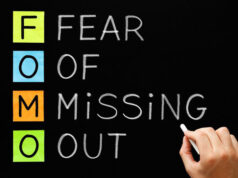“I am so nervous,” “I can’t do anything because I am so scared,” “What is the big deal; why can’t he just drive the car?” “She just can’t stop washing and cleaning”. These complaints that I hear on a daily basis may be in reference to a four-year-old child or an eighty-year-old adult. The common denominator between these comments is anxiety.
Many members of our community are suffering from anxiety. It is normal to have anxiety about certain stressful areas of life. Common anxiety producing activities may be a test, a date, or a job interview. These are common anxiety inducing activities. However, when a person’s anxiety begins to engulf his or her life and they are not able to function in their everyday activities they need to seek help. The good news about anxiety is that the individual him or herself can control the anxiety with the help of cognitive behavioral therapy (CBT), without the use of medication. However, there are those that require therapy in conjunction with medication to help them overcome anxiety.
What exactly is anxiety? It is intense feelings of fear, worry, and nervousness. These feelings are often accompanied with physical symptoms of heart palpitations, trembling, sweating, dizziness, nausea and possible stomach ailments.
Anxiety is hereditary! That means that we cannot control who suffers from it. One is predisposed to it and it is in one’s genes. There may be certain life events that bring it to the surface, at its root, anxiety is part of one’s genetic makeup. Because anxiety is hereditary, there is no way to avoid it, fortunately one can learn to control it.
A person who suffers from anxiety needs to be treated with CBT. CBT means that with the help of a therapist one can teach their brain to think and act in a different way than it operated in the past. Cognitive behavioral therapy is based on the idea that our thoughts cause feelings and behaviors. As a result of this foundation, the benefit of this is if we change our thoughts we can change our behavior, even if the situation does not change.
Natalie,* a forty-five-year old woman, came in to my office one day looking like she had not slept in days. And indeed she hadn’t. It was almost Passover and she was frantically cleaning and scrubbing her house. She was nervous that there might be some tiny little crumb somewhere that she or the three housekeepers that she had hired were not able to find. Therefore, day and night for three weeks, she was on her hands and knees with her toothbrush and a box of toothpicks. Her husband consulted rabbis and they said that this was not necessary and that their house was clean for Passover, yet Natalie continued nervously cleaning day and night. Her husband could no longer see her in this state and made her go get help. With CBT, Natalie trained her brain to realize that though there is a lot to clean and it can make her nervous, but that there is a difference between compulsive, never-ending cleaning and simply clean. She can be finished with cleaning and it should not consume her entire day. Natalie’s successful use of CBT allowed her to stop cleaning and be satisfied with how clean her house actually was. She no longer allowed cleaning to take over her life.
Another client that I worked with was Rachel,* a nine-year-old girl, who was allergic to many foods. This made her very nervous when going to school or other places outside of her home. She did not know what foods would be there and she was always afraid that she would have a reaction. Many times in school and at friends’ homes she claimed to be having an allergic reaction and was rushed to the hospital only to find out she was having a panic attack as opposed to an allergic reaction. Together using CBT, Rachel and I worked on techniques to help her calm herself down and distinguish between an allergic reaction and her anxiety. Rachel went from being a girl who was afraid to walk down the block to a girl who could go anywhere without even thinking about it.
So if as you read this article and you are thinking that you feel similar to Natalie or Rachel, you should find a cognitive behavior therapist to help you overcome your anxiety. Once the right therapy is found, it can have a tremendous impact on your life, freeing your mind so that your energy is available to enjoy life to its fullest.
*names and some details have been changed to protect the client’s identity.
Michal Geffner is a LMSW psychotherapist practicing in the Flatbush area sharing office space with Vicky Harari. She specializes in anxiety disorders in children and adults and has a broad spectrum of training and experience in all fields.



